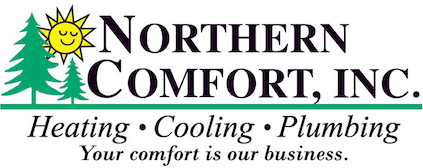Completing the search for your first home is an exhilarating experience. You’re likely juggling numerous details to ensure you’re making the right choice. We believe that understanding your future HVAC system is vital. The property’s HVAC system represents a substantial investment and source of potential long-term costs, so being thorough should be a top priority for first-time homebuyers.
In the following guide, we’ll share seven tips for discovering all there is to know about a home’s heating and cooling system. And if you want a more in-depth opinion from the pros, don’t hesitate to contact Northern Comfort Inc. Our staff can weigh in on your options with industry insights that are second to none.
1. Which Kind of HVAC System Does the Home Use?
Start by identifying what specific HVAC system the home includes. Furnaces tend to last longer than air conditioners, and relatively new types of HVAC systems like heat pumps can offer average life spans that are even longer. Tracking down the make and specific model gives you a clear understanding of how much maintenance it will require.
2. What Is the Current System’s Age?
It also helps to learn how old the HVAC system is when you’re considering a potential new home. For the most part, HVAC systems should survive for around 10-12 years. Knowing when it was installed helps you anticipate future maintenance needs or when it might break down. Older systems may be more vulnerable to problems, so planning ahead of time for a replacement unit might be needed faster than expected.
3. Is the Warranty Still in Effect?
Don’t forget to look into whether the HVAC system is covered by a warranty. If it is, this can help with maintenance costs. HVAC warranties typically include parts and labor, but the details in each policy will vary. Don’t forget to look into any terms that aren’t familiar to ensure you understand your coverage and any possible out-of-pocket costs.
4. When Was the Last Time It Received Maintenance?
Don’t forget to check the maintenance history of the HVAC system, if the records are available. This service history can demonstrate if the repair needs are high or how much upkeep was provided. You should at least try to track down a history of key tasks like filter changes, which is a positive sign indicating regularly scheduled tune-ups.
5. Do You Know Its Energy Efficiency Ratings?
Finding a home that features an HVAC system with great energy efficiency means more manageable utility bills and a smaller environmental impact. Try and find the seasonal energy efficiency ratio (SEER) ratings for air conditioning along with the annual fuel utilization efficiency (AFUE) for furnaces. Higher SEER ratings mean better cooling across the entire season, while strong AFUE ratings illustrate that the fuel is efficiently converted into useable heat.
6. Did You See Any Problems After Your Own Inspection?
Even without the know-how of an HVAC technician, you should still examine the HVAC system on your own. Look for any concerning items that weren’t mentioned by the seller or real estate agent. This includes strange noises, spots with uneven heating or cooling and attempts at concealing any obvious damage.
7. Have You Sought Out Expert Advice?
If you’re still hesitant to make an offer because of the condition of the HVAC system, it’s beneficial to get a professional opinion from certified HVAC professionals. They will be much more likely to catch things you might not, like leaks in the refrigerant, wiring issues or flawed ductwork.
A Chat with Northern Comfort Inc Helps Take the Stress Out of Your Home-Buying Journey
Choosing your first home should be thrilling, and Northern Comfort Inc wants to ensure that doesn’t change. Get in touch with us at 507-387-6596. We can talk about how our HVAC services ease your mind, giving you what you need to dive into home-ownership with confidence.


